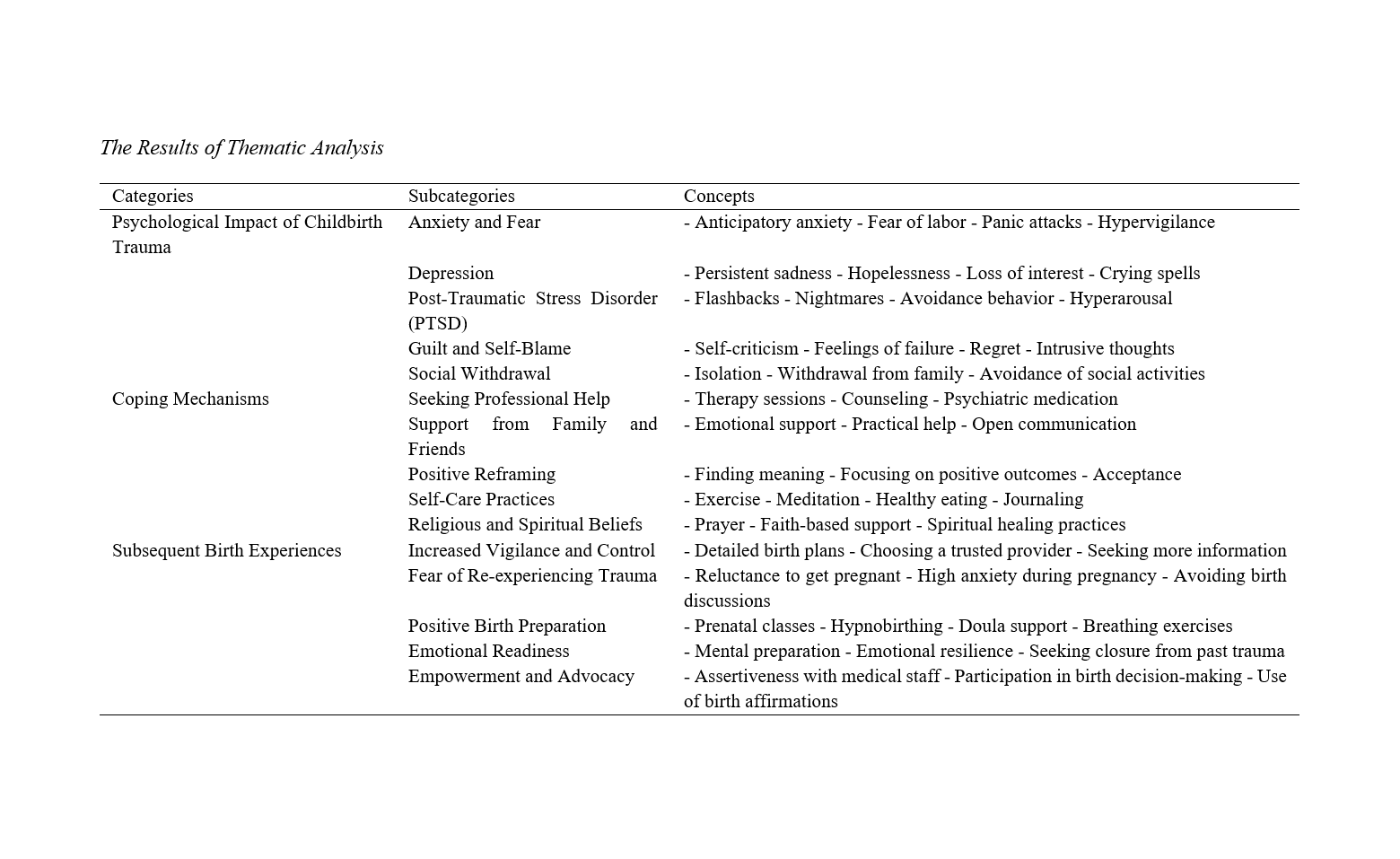Exploring the Psychological Effects of Childbirth Trauma on Women’s Subsequent Birth Experiences
Keywords:
Childbirth trauma, psychological effects, subsequent birth experiences, coping mechanisms, maternal mental healthAbstract
Objective: Childbirth can be a significant and transformative experience, yet for some women, it is marred by trauma, leading to profound psychological effects. This study aims to explore the psychological effects of childbirth trauma on women's subsequent birth experiences, focusing on understanding how past trauma influences mental health, coping mechanisms, and perceptions of future births.
Methods and Materials: This qualitative study employed a phenomenological approach to gain in-depth insights into the personal experiences of 24 women residing in Tehran who had experienced childbirth trauma and subsequently gave birth again. Data were collected through semi-structured interviews until theoretical saturation was reached. The interviews were transcribed verbatim and analyzed using NVivo software, following a thematic analysis approach to identify key themes and subthemes.
Findings: Three main themes were identified: psychological impact of childbirth trauma, coping mechanisms, and subsequent birth experiences. The psychological impact included subthemes of anxiety and fear, depression, post-traumatic stress disorder (PTSD), guilt and self-blame, and social withdrawal. Coping mechanisms encompassed seeking professional help, support from family and friends, positive reframing, self-care practices, and religious and spiritual beliefs. Subsequent birth experiences included increased vigilance and control, fear of re-experiencing trauma, positive birth preparation, emotional readiness, and empowerment and advocacy.
Conclusion: The study highlights the significant and lasting impact of traumatic childbirth on women's mental health and their subsequent birth experiences. Addressing the psychological aftermath of such trauma through early screening, comprehensive support systems, and empowering birth preparation is crucial for promoting maternal well-being and positive birth outcomes. Culturally sensitive care and targeted interventions can further enhance the support provided to women, helping them heal from trauma and approach future births with confidence.
Downloads

Downloads
Additional Files
Published
Issue
Section
License
Copyright (c) 2024 Aliyeh Heybati, Seyed Mojtaba Ghasemi, Mahtab Moraveji (Author); Zahra Sadat Goli (Corresponding Author); Mahsa Esmaeli (Author)

This work is licensed under a Creative Commons Attribution-NonCommercial 4.0 International License.









